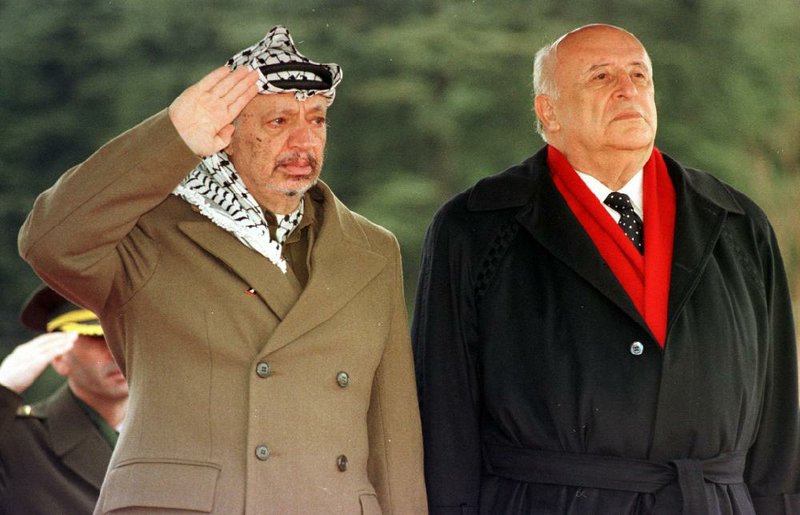Suleyman Demirel, who served seven times as Turkey's prime minister, dominating the nation's politics when the country struggled with violence, economic stagnation and military rule, died early Wednesday in Ankara, Turkey. He was 90.
Guven Hospital in Ankara confirmed the death in a statement.
Demirel became Turkey's president after his many turns as prime minister, and his career spanned nearly half a century.
Depending on the mood of the moment, he could be a European-oriented progressive or a harsh opponent of diversity. Twice overthrown in coups, he never questioned the right of generals to play a leading role in Turkish politics.
Demirel was renowned for his encyclopedic knowledge of Turkey. It was said he could fly over any village and name its mayor.
"He was a supreme pragmatist. He wanted to stay in power," said Morton Abramowitz, a former U.S. ambassador to Turkey. "Whether he achieved much or not wasn't important."
Demirel was born in 1924 in the town of Islamkoy in southwestern Turkey. The airport in the provincial capital, Isparta, was later named for him, as was the local university.
Like several other Turkish leaders of his generation, Demirel was trained as an engineer. He oversaw many hydroelectric projects and became director general of the State Hydraulic Works at 31. He became known as "the king of dams."
In 1954, Demirel was the first Turk selected for an Eisenhower Fellowship, a program that brought emerging leaders to the United States for several months of traveling, seminars and classes.
After a military coup in 1960, Demirel's political ambitions were encouraged by armed forces commanders who wanted to turn the government over to civilians whom they believed they could control. In 1965, he was elected prime minister, the country's youngest at 40 years old.
Demirel worked closely with the officers who had seized power. Still, violence shook the country, with political gangs staging killings, bombings and kidnappings.
Demirel's coalition frayed, and on March 12, 1971, his military patrons demanded that he form a government that could "neutralize the current anarchical situation." He resigned later that day, allowing the military to take control of the country.
After civilian rule was re-established in the late 1970s, Demirel served as head of three governments. It was during that period that Turkey fell into an economic crisis. Inept handling of foreign debts and higher global oil prices led to triple-digit inflation, a sharp rise in unemployment and a crash in industrial production.
After the military staged another coup in 1980, it banned Demirel and other party leaders from politics. The ban was lifted in 1987, and in 1991 Demirel became prime minister again.
Two years later, President Turgut Ozal, a Demirel protege, died of a heart attack. Demirel succeeded him, becoming the country's ninth president. When his term expired in 2000, he tried and failed to have the constitution amended to allow his re-election.
The last years of Demirel's career were marked by the emergence of Kurdish nationalism, which developed into civil war. He endorsed the military's tactics, which included torture of detainees, the assassination of suspected militants and an absolute rejection of Kurdish demands.
Demirel described his country as one dedicated to "tolerance and freedom of opinion" and insisted that "all Turkish citizens are fully free and have equal rights." Yet he urged the Kurds to consider themselves Turks above all. Allowing them to maintain their ethnic identity, he warned, "would lead to the destabilization of Turkey."
Demirel also followed the military's lead in foreign affairs. He was ardently anti-Soviet and promoted good relations with the U.S. and Israel. When the German Parliament voted in 1992 to cut off military aid because of the harshness of the Kurdish conflict, he declared, "Today the opinion of the West no longer interests us."
Interviewers often asked Demirel how he justified jumping with such alacrity from one political position to another. He would reply: "Dun dundur, bugun bugundur," which means "Yesterday was yesterday, today is today." It became his best-known slogan.
Information for this article was contributed by Sebnem Arsu of The New York Times.
A Section on 06/18/2015

